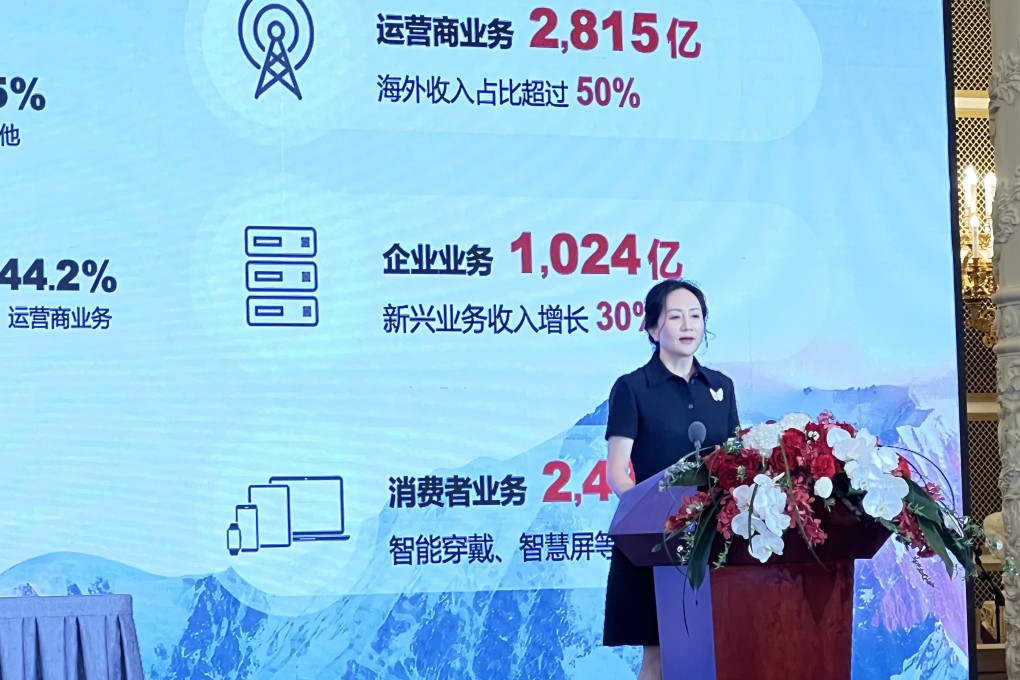Advertisement
Huawei CFO Meng Wanzhou returns to embattled Chinese telecoms giant as 2021 revenue plunges under US sanctions
- The Huawei chief financial officer assured that the firm is ‘more capable of dealing with uncertainty’, after posting its worst annual revenue performance
- Privately-held Huawei posted total 2021 revenue of US$100 billion, down 29 per cent from a year earlier
Reading Time:3 minutes
Why you can trust SCMP
35

Huawei Technologies Co chief financial officer Meng Wanzhou, who returned to China after more than 1,000 days of detention and house arrest in Canada, on Monday took centre stage at the press conference for the company’s annual report, marking her high-profile comeback at the struggling, US sanctions-hit telecommunications giant.
Meng, daughter of Huawei founder and chief executive Ren Zhengfei, made her official return at a time when the Shenzhen-based company lost some ground in the US$100 billion global telecoms equipment market, as the firm scrambled to adapt its operations to tighter restrictions imposed by Washington, covering access to advanced chips developed or produced using US technology, from anywhere.
Privately-held Huawei posted total 2021 revenue of 636.8 billion yuan (US$100 billion), down 29 per cent from a year earlier and its worst annual sales performance on record. Net profit reached 113.7 billion yuan, a 76 per cent jump from a year ago.
Advertisement
But 50-year-old Meng, widely seen as a her father’s heir apparent at Huawei, put a positive spin on things. “Despite a revenue decline in 2021, our ability to make a profit and generate cash flows is increasing,” she said. The chief financial officer was joined in the company’s presentation by Huawei rotating chairman Guo Ping.
Revenue from Huawei’s consumer business, which includes smartphones, declined 50 per cent to 243.4 billion yuan, while revenue from its carrier business tumbled 7 per cent to 281.5 billion yuan.
Advertisement
Advertisement
Select Voice
Select Speed
1.00x
